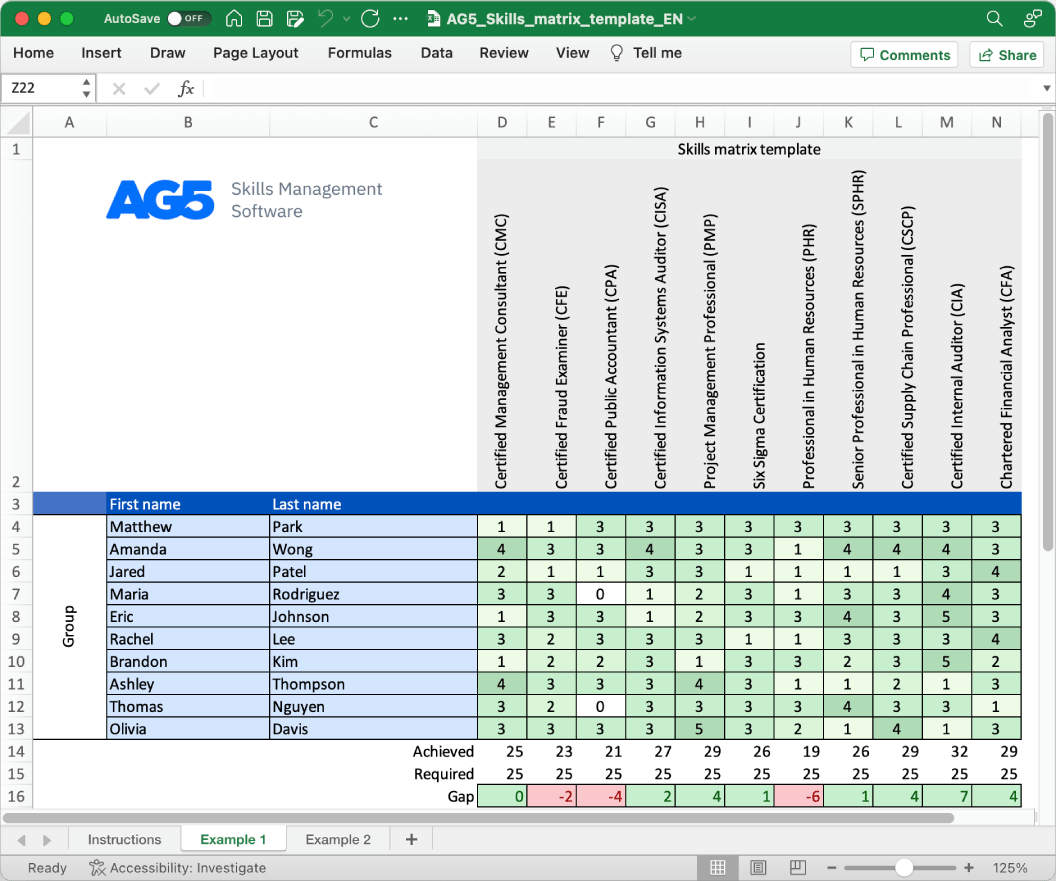Regulatory intelligence skills matrix template
A skills matrix template is a tool teams can use to assess their regulatory intelligence skills and knowledge
Download your free template here

Overview Copied
With our free regulatory intelligence skills matrix template, you will receive a clear overview of the skills that are present in your organization, as well as those that are missing. Using this information, you can develop and implement a plan to ensure that your employees’ skills are up to date, comprehensive, compliant, and ready for the future.
- Certified Regulatory Intelligence Professional (CRIP)
- Certified Regulatory Intelligence Analyst (CRIA)
- Certified Regulatory Intelligence Manager (CRIM)
- Certified Regulatory Intelligence Specialist (CRIS)
- Certified Regulatory Intelligence Consultant (CRIC)
- Certified Regulatory Intelligence Project Manager (CRIPM)
- Certified Regulatory Intelligence Planner (CRIP)
- Certified Regulatory Intelligence Trainer (CRIT)
- Certified Regulatory Intelligence System Administrator (CRISA)
- Certified Regulatory Intelligence Compliance Officer (CRICO)
- Certified Regulatory Intelligence Process Auditor (CRIPA)
- Certified Regulatory Intelligence Documentation Specialist (CRIDS)
- Certified Regulatory Intelligence Investigator (CRII)
- Certified Regulatory Intelligence Risk Assessor (CRIRA)
- Certified Regulatory Intelligence Reporting Analyst (CRIRA)
- Certified Regulatory Intelligence Evaluation Expert (CRIEE)
- Certified Regulatory Intelligence Team Leader (CRITL)
- Certified Regulatory Intelligence Strategy Consultant (CRISC)
- Certified Regulatory Intelligence Communication Specialist (CRICS)
- Certified Regulatory Intelligence Logistics Coordinator (CRILC)
Benefits Copied
Skills management software is important in regulatory intelligence as it helps track and assess the expertise and qualifications of personnel responsible for monitoring and interpreting regulatory changes, ensuring timely awareness, compliance, and informed decision-making within the organization.
Author Copied
Revisions Copied
Tired of managing skills in Excel?
Say goodbye to Excel matrices. Start using AG5’s plug and play skill matrix software.
Recognized by G2 for Excellence in Skills Management

